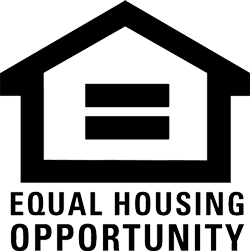Nearly 3 in 4 Americans Sometimes Feel ‘House Rich, Cash Poor’
1 in 5 American homeowners constantly feel that they are house rich and cash poor, and that their housing problems are getting worse. This is according to a new, wide-ranging and multi-generational study conducted by alternative home equity tapping company Hometap.
A feeling of being “house rich and cash poor” chronically affects 1 in 5 Americans on a constant basis, however when opening up to a wider segment of Americans who feel that way at least some of the time, that figure balloons to nearly 3 in 4 (73%) of Americans who feel house rich and cash poor. This is according to Hometap’s first annual Hometap Homeownership Study, which also finds that nearly 60% of homeowners across three different generations feel that there is no easy solution to the problem of being house rich and cash poor.
“We knew there were pockets of homeowners who felt house rich, cash poor — we see that every day in our work — but were surprised to find that 1 in 5 feel that way so often,” says Jeffrey Glass, CEO of Hometap in the survey.
The financial stresses of homeownership
While other studies typically attribute homeownership as a critical factor in allowing more people to obtain and build wealth over the course of a lifetime, all surveyed generations in Hometap’s study also agreed with the idea that homeownership can make the achievement of other financial goals – including saving for retirement or paying off student loans – more stressful and challenging.
The different generations also agree that typical remedies for alleviating this kind of financial stress did not seem viable to their specific situations.
“Security of future income and cost of home repairs were the top two concerns for all three generations of homeowners,” the study reads. “Despite all three cohorts majoritively agreeing (83%) that they’re building equity in their properties, they also agreed that there aren’t favorable options for resolving the house-rich, cash-poor situation because loans, HELOCs, and selling weren’t fitting solutions.”
As many as 45 million mortgage holders are also prime candidates for refinancing according to a 2019 study by Black Knight, but many are not availing themselves of the option.
Gap between wages and mortgage costs widen, equity as a solution
While the job market in the United States remains generally healthy as exhibited by a low unemployment rate, the relative stagnance of wage growth has a pronounced effect on Americans’ management of their housing costs. As activity in the housing market increases, modest homes at manageable prices become less reachable.
“Despite low rates (63% of homeowners with mortgages pay interest rates between 3 percent and 7.5%, according to the Census Bureau) the other costs that come with homeownership are no match for non-competitive wages,” the study reads. “Income taxes and rising mortgage payments were just some of the factors homeowners find moderately to extremely stressful (63% and 52%, respectively).”
However, the health of the housing market and the growth being observed in home prices is where a major solution to these rising anxieties presents itself: with a rise in home prices also comes a rise in the levels of home equity that Americans can tap into.
“Home values have gone up 5.2 percent over the past year and Zillow predicts they will rise 2.2% more within the next year, providing homeowners (especially those who have owned their homes while) with even more options for tapping into their equity,” the study says.
“This study from Hometap makes clear that homeowners think there’s a problematic gap between housing costs and income,” says Jeremy Sicklick, CEO of residential real estate valuation company HouseCanary in the study. “But what homeowners need to keep in mind is that on average, home values tend to increase steadily across the U.S. It seems likely that homeowners will start to see their properties as usable financial assets that allow them to be more authoritative in managing their financial situations.”
Article by Chris Clow on reversemortgagedaily.com



